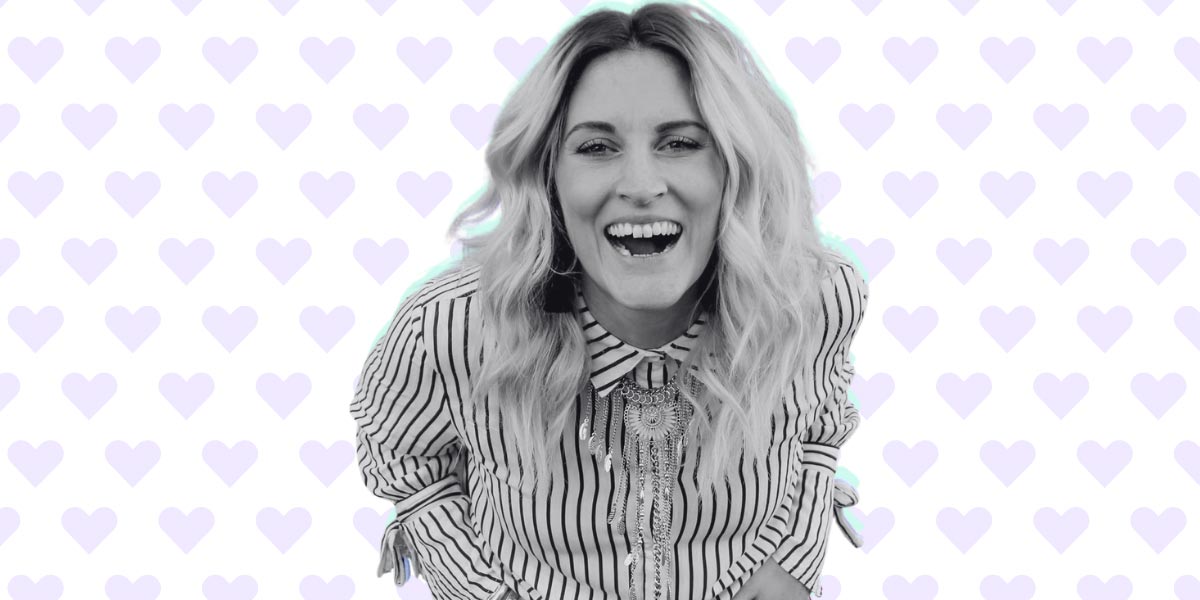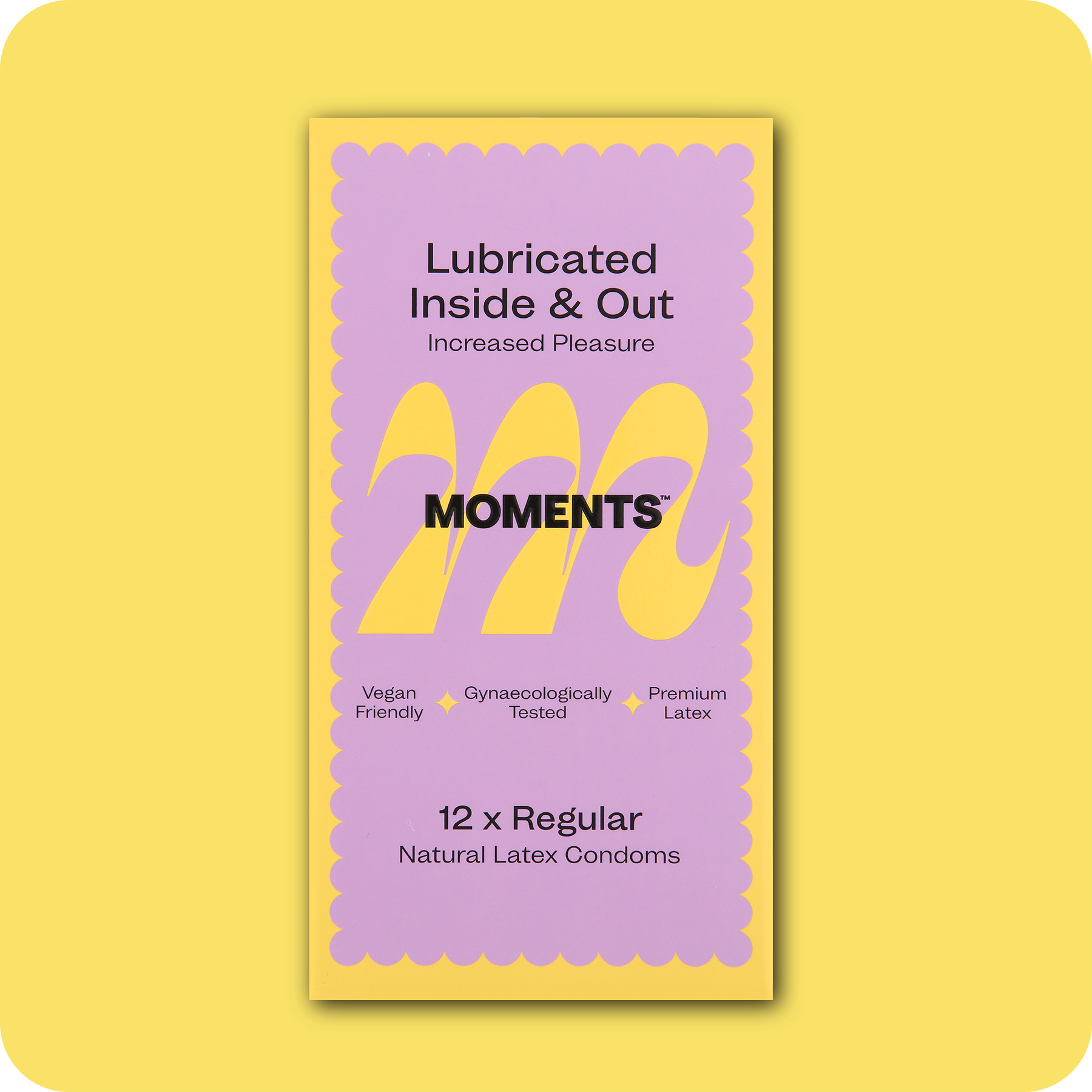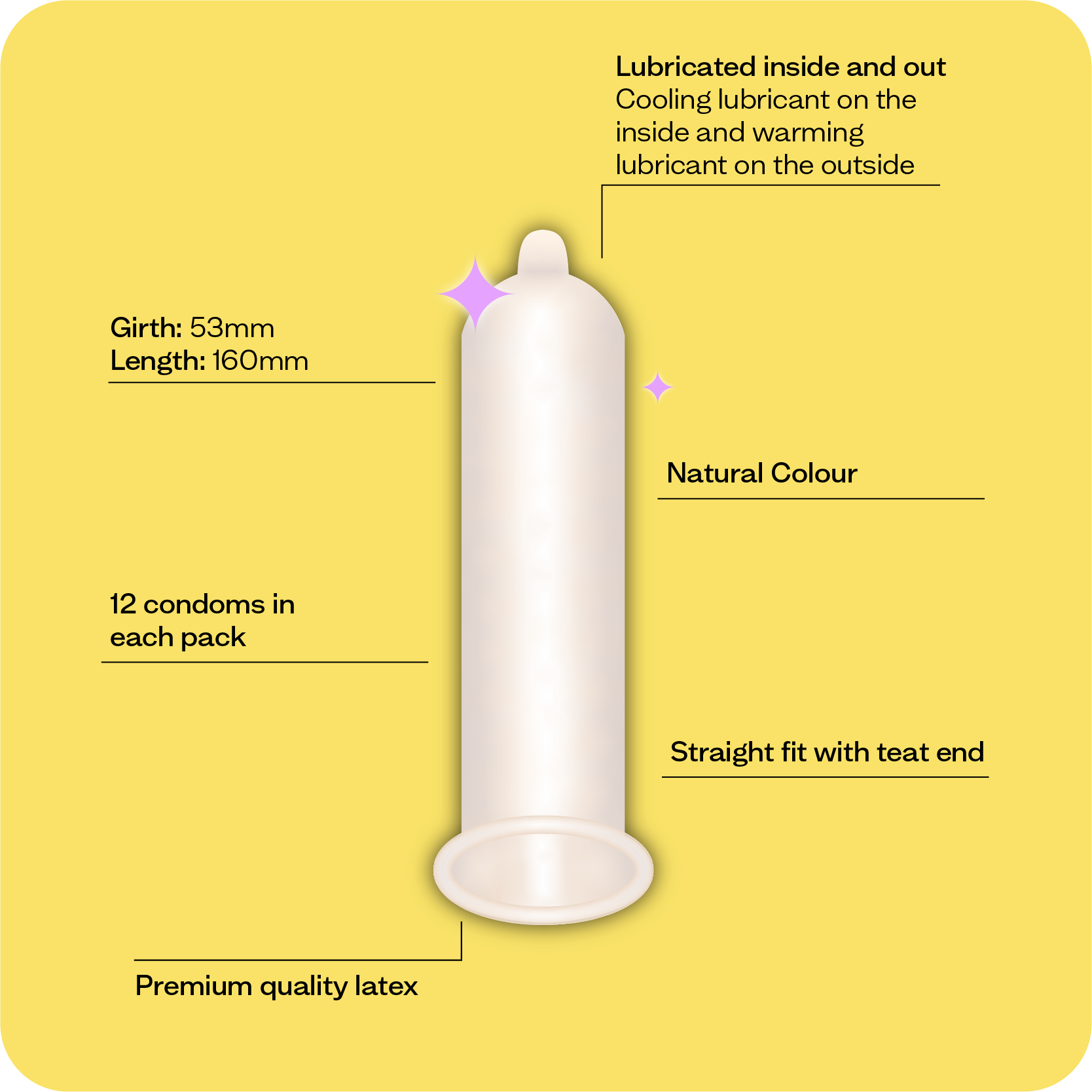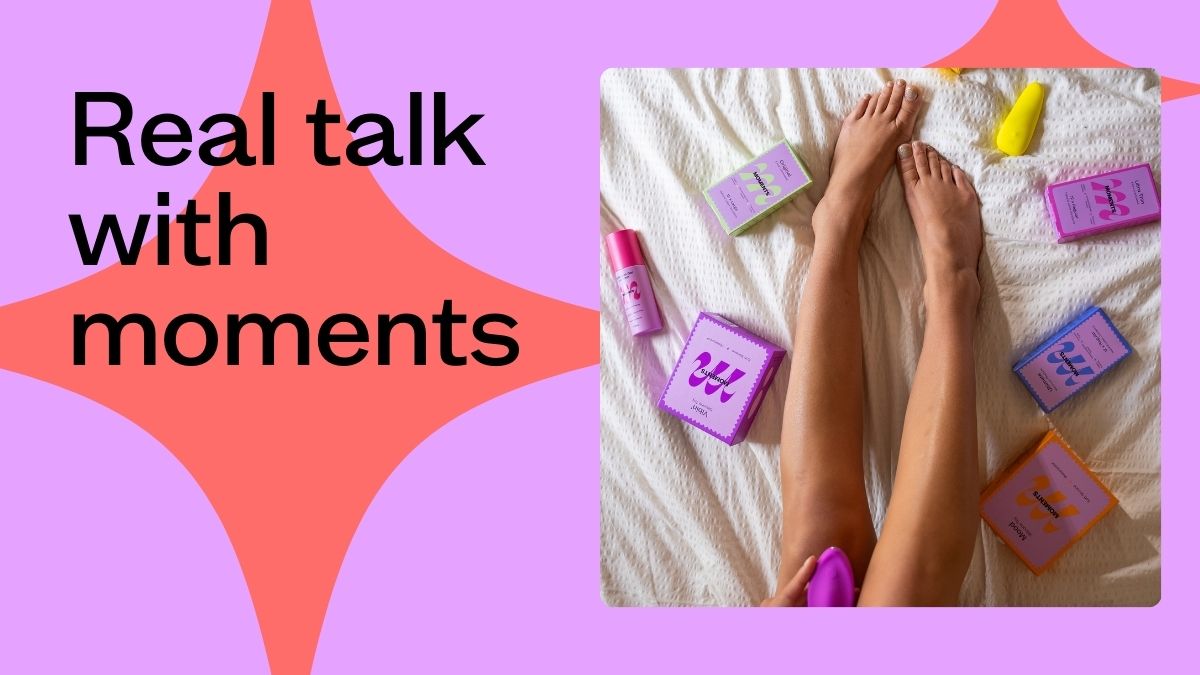

We Ask a Sexologist How to Squash the Shame Around Condoms
“Sex education is public health.”
Did your sex-ed class at school have you watching birth videos or putting a condom on a banana?!
We’ve learnt the hard way that when sexual health isn’t inclusive and extensive, it can lead to shame, lack of self-expression, and overall feelings of unsafety.
Moments Condoms are on a mission to make women feel confident in their sexual health and even have 40 per cent off all products using this exclusive deal!Sexologist Erika Shaw is also fighting the good fight to shift the narrative around sexual education and public health.

Meet Erika.
Image: Supplied.
Think of Erika as a little less Coach Carr from Mean Girls, and a little more Jean Milburn from Sex Education.
Above being a sexologist and counsellor, she’s a passionate educator in the sexual health space.
But, like the rest of us, her experience of sex-ed in school was “pretty much non-existent”.
It looked a bit like this: boys and girls getting split up to look at “horrendous pictures of STIs”, studying the human body in biology, and the occasional mention of periods and contraception.
She knew there was more to sexuality than that, and it was that curiosity that set her on the path to find answers.
Now, she trains and counsels people from all walks of life on how to “to talk with less awkwardness about sex.”
What needs to change?
Erika compared teaching sex-ed to teaching people how to do taxes—you can’t do it in a half hour session, and sadly, a lot of schools still don’t do it at all.
“There needs to be more of a constant messaging and conversation, and that’s not just penises and vulvas,” she said.
And beyond the awesome body and sex positivity movement making waves on social media, Erika said we need to face the fact that sex education, if treated as publi
c health, could minimise harm and increase overall safety.
“If you teach young people about their bodies and what is appropriate, they can tell you when something inappropriate has happened. At the moment, we’ve got a generation of adults that can’t walk into a doctor and go, “my vulva hurts”. That is a public health issue,” Erika added.
So, how can we flip these narratives and feel less shameful?

Let’s say you’re at the supermarket, in the personal health aisle, and you’re contemplating which pack of condoms to buy. Unfortunately, it’s pretty common to feel odd or
shameful about this. But, why?
Erika said this stems from a lot of systemic and societal shortfalls, in both our sexual education and our cultural blueprints.
“What we’ve got to recognise is that this issue is valid, but it’s one that has been created in you from the systems that have raised you, and there was a problem with them,” she said.

But the bottom line, Erika said, is that condoms are in the grocery store for a reason—and are as common and vital as paper towels.
“Why shouldn’t we keep ourselves safe? When you’re in that aisle, address this, because the best thing you can do is get them just in case. It’s about you being safe,” she said.
“And to be honest, everybody needs condoms! Even if you’re in a same sex relationship and both of you have vulvas. Condoms are more versatile than
just covering up on a one-night stand.”
And you can get them for 40 per cent off, thanks to this exclusive deal with Moments Condoms.
Featured Product
Popular Posts
- Choosing a selection results in a full page refresh.
- Press the space key then arrow keys to make a selection.












